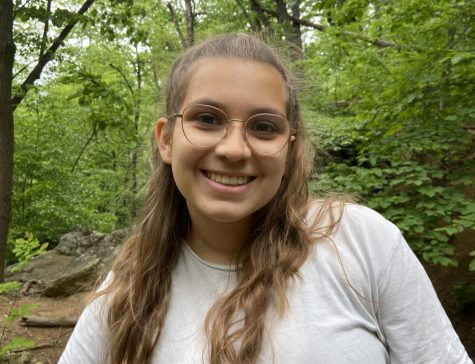Mitau lecturer John Ikenberry speaks to Macalester College on the future of the liberal world order

March 3, 2022
On Feb. 24, Macalester’s political science department invited Princeton University professor John Ikenberry to present as their 42nd Annual G. Mitau Endowed Lecturer.
In his lecture, Ikenberry addressed the question “does the liberal international order have a future?” Ikenberry was chosen by a committee within the political science department as a speaker who is prominent in the current geopolitical discourse and the current debates among political science academics.
“[We were looking] for somebody who’s dealing with the liberal international order and whether it was falling apart or whether it could be saved, and Ikenberry invented the term ‘liberal international order,” Macalester political science Professor Andrew Latham said.
Ikenberry first delved into the definition of the liberal international order, explaining it as a world system created to make the world safe for democracy.
The liberal international order aims “to build a kind of environment, an international system in which liberal democracies and other kinds of states, open societies can survive and flourish,” Ikenberry said.
The liberal international order was established at the end of World War II, with the U.S. and the Allied nations putting together global legal institutions like the World Trade Organization and the United Nations. However, this order did not become a global phenomenon until the fall of the USSR in 1991 when the end of the Cold War allowed for more countries to unite under the values of the liberal international order.
“The liberal world order is about human rights, liberal democracy and free markets,” Latham said.
Ikenberry provided a range of reasons for governments to support the liberal international order. These included the benefits of free trade, the cooperation facilitated by institutions, and that democracies are predisposed to work together. Furthermore, as countries become increasingly interdependent, cooperation becomes a desirable quality for governments.
Today, the liberal world order may be disappearing. The rise of new powers, such as Russia under Putin’s governance or the People’s Republic of China (PRC), take away from the U.S.’ previous place as the single most dominant world power. Ikenberry points to some mistakes that have set the liberal international order in crisis today, including the war in Iraq. He argues that it was not motivated by the values of the liberal world order, but rather that it was motivated by American desires to maintain power in the region. He also mentioned the financial crisis of 2008, which revealed a weakness in the liberal world order’s support of neoliberalism.
Ikenberry also pointed to inviting the PRC into the liberal world order as a bet that the PRC would see the benefits of the order and make efforts to adopt those liberal values. However, this seems to be a losing bet.
“[There has been] a sense of lost confidence in collective solutions to common problems,” Ikenberry said. “We aren’t cooperating as much as we used to. We aren’t using our international institutions. We aren’t building new ones for new problems.”
With the lecture happening only three days after Russia invaded Ukraine, Ikenberry also addressed how the liberal international order would be affected by these unfolding events. To Ikenberry, the war between Ukraine and Russia is a symbol of the current crisis the liberal world order, where the rule of force has replaced the rule of law.
“Russia’s invasion of Ukraine is more than a war between two countries… It’s a contest over the terms of 21st century world order,” Ikenberry said. “Will it be an open rule-based order tied to cooperation among democratic countries or will it be a return to spheres of influence, a block-oriented at home spheres of influence abroad? Or will it be a contest between the two and a world that will navigate between them?”
Even though Ikenberry was invited to speak for the Mitau lecture many months before the lecture’s planned date, Latham believes that his lecture topic became very timely in regards to Russia’s invasion of Ukraine.
“Russia has become a real threat to the liberal international order and we have to stand up to Vladimir Putin and the Russians because the stakes are high,” Latham said. “The ugly realities of power politics have intruded on people’s consciousness again, in a way they hadn’t for a long time.”
However, to Ikenberry, the liberal world order still holds a future despite the current crisis. He believes that if the liberal international order can prove that it is still the best method of solving global problems and allowing societies to thrive and prosper, then it is likely to have a future.
“I certainly don’t have the answers, but I do have a little bit of history and a little bit of theory that I’ve told you about tonight that gives me a little bit of leverage and a little bit of confidence that there is a possibility for us to rebuild, rethink and reimagine the global system,” Ikenberry said.













Bankotsu • Mar 3, 2022 at 11:27 pm
U.S. global hegemony is heading towards doom.